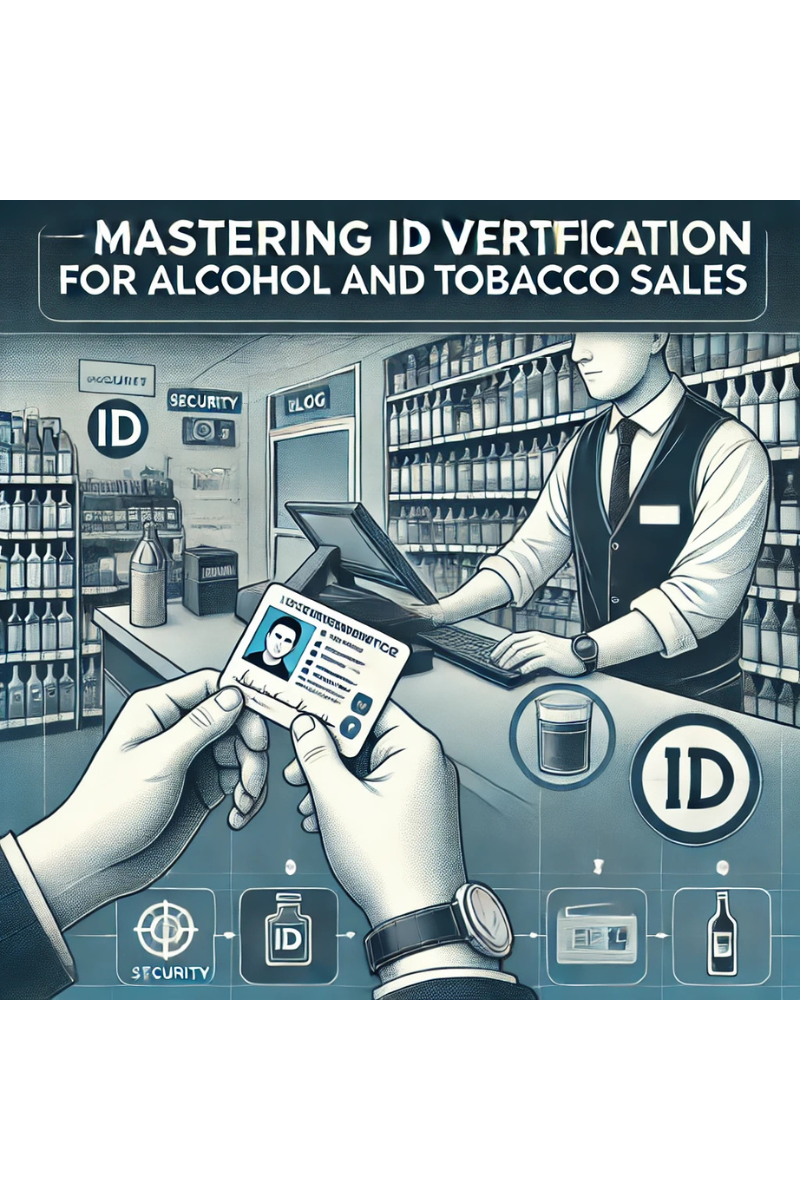Mastering ID Verification for Alcohol and Tobacco Sales
Discover the essential knowledge and skills needed to properly verify IDs for alcohol and tobacco sales in convenience stores.

In the busy atmosphere of a convenience store, the moment a customer approaches the register with a six-pack of beer or a pack of cigarettes can quickly turn into a critical situation. As a sales associate, you might notice that the customer looks young, prompting you to consider whether they are of legal age. This scenario highlights the importance of understanding acceptable forms of identification for alcohol and tobacco sales.
A valid government-issued photo ID is the gold standard for age verification. Acceptable forms include driver’s licenses, state-issued ID cards, military IDs, and passports. When examining these IDs, it’s essential to focus on several key elements. Look closely at the photo to ensure it matches the person presenting it. Check the expiration date; an expired ID is not acceptable regardless of the individual’s age. Additionally, verify the date of birth to confirm that they meet the legal age requirement.
Sales associates should also be trained in proper examination techniques. This involves feeling the ID for its thickness and checking for signs of tampering. Identifying security features such as holograms or watermarks can help confirm authenticity. If you have any doubts about an ID’s validity, don’t hesitate to ask questions or request another form of identification.
As an assistant manager, your role is crucial in fostering a culture of compliance among your team. Lead by example and ensure that everyone understands the importance of thorough ID checks. Regular training sessions can help reinforce these practices, including role-playing various scenarios to prepare staff for real-life situations.
Store managers must prioritize creating an environment where ID checks are seen as essential rather than burdensome. Establish clear policies regarding ID verification that all employees must follow. When customers express frustration about being asked for identification, it’s important to remain calm and professional. Explain that these checks are part of store policy and required by law.
Independent owners should consider implementing electronic age verification systems to assist with this process. These systems can quickly assess age from an ID and detect potential fakes while keeping records of age checks for compliance purposes. However, it’s vital to remember that technology should complement human verification rather than replace it.
Understanding the legal consequences of failing to verify IDs is crucial for everyone involved in alcohol and tobacco sales. Selling these products to minors can result in heavy fines, license suspensions, or even criminal charges against both the employee and the business. Regularly reviewing local laws ensures that your store remains compliant with current regulations.
Training should not be a one-time event; ongoing education about ID verification is essential. Conduct refresher courses where staff can discuss challenges they’ve faced and share best practices with one another. This collaborative approach fosters confidence among employees when handling ID checks.
Creating a culture where compliance is prioritized will help ensure that every transaction is conducted responsibly. Recognizing employees who excel at performing thorough ID checks can motivate others to follow suit.
By focusing on these strategies, you can enhance your store's approach to ID verification for alcohol and tobacco sales. The goal is not just compliance but also building trust with your customers while ensuring their safety.
Are you ready to empower your team with the knowledge and skills necessary for effective ID verification? With commitment and training, your convenience store can maintain high standards while providing excellent service to every customer.





